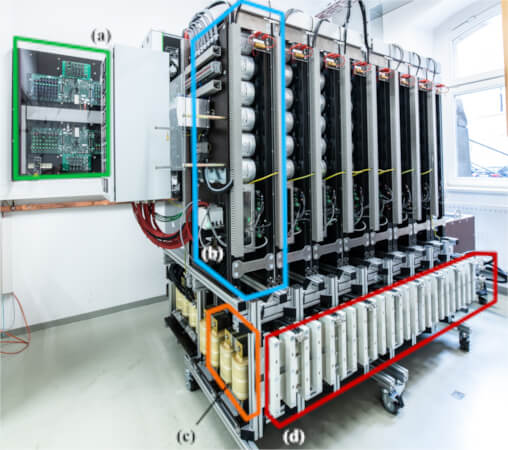Electrical Engineering Revolution in South Africa: A Journey of Transformation

In a rural township near Pretoria, a boy named Sipho found inspiration in the flickering lights of his community. Growing up without consistent access to electricity, he often witnessed how a lack of power limited opportunities for education and economic growth. Determined to change this narrative, Sipho began tinkering with old appliances and batteries, teaching himself the basics of electrical systems. His passion led him to a local technical college, where he excelled in electrical engineering and earned a scholarship to a prestigious university in Johannesburg. Sipho’s journey reflects the transformative potential of engineering in South Africa.Over the past two decades, South Africa has experienced a significant evolution in the field of electrical engineering, reshaping its economic landscape, enhancing educational prospects, and altering social dynamics. From the lush landscapes of KwaZulu-Natal to the bustling cities of Gauteng, advancements in engineering have sparked a wave of innovation and progress.At the forefront of this engineering transformation is the rise of renewable energy technologies. With solar and wind energy becoming more accessible, communities have begun to harness these resources, fundamentally changing their relationship with power. This shift has been crucial in bridging the gap between urban and rural areas:
- Energy Access: Initiatives like community solar projects have enabled villages to generate their own electricity, empowering them to bypass unreliable grids and fostering economic independence.
- Educational Initiatives: Technical education programs have evolved to meet the needs of diverse learners. Organizations like the South African Institute of Electrical Engineers offer workshops and resources to enhance practical skills, making engineering knowledge more accessible.
- Healthcare Innovations: The field of electrical engineering has played a critical role in improving healthcare. Innovations in medical devices and telehealth have made vital health services more available, especially in remote areas.
The South African government has actively supported this engineering growth through strategic initiatives. Programs like the Renewable Energy Independent Power Producer Procurement Programme have fostered a conducive environment for innovation. Investment in infrastructure has led to the establishment of engineering hubs that are crucial for nurturing talent and driving creativity:
- Innovation Centers: Facilities such as the Innovation Hub in Pretoria provide essential resources for startups and entrepreneurs in the engineering sector, promoting collaboration and development.
- Skill Development Programs: Focused efforts on training and education aim to equip young South Africans with relevant skills. Technical schools and vocational programs are addressing the skills gap in the engineering field.
- International Partnerships: Collaborations with global companies enhance local capabilities through knowledge transfer and investment, ensuring the workforce is prepared for the challenges ahead.
These initiatives have resulted in the emergence of successful engineering firms, such as SolarAfrica, which specializes in solar solutions, and DNV GL, which focuses on energy management. The success of these companies highlights South Africa’s growing influence in the engineering sector, contributing to job creation and entrepreneurial opportunities.However, the engineering revolution faces significant challenges, including high costs of materials, limited access to quality education, and infrastructural deficits. Despite these hurdles, ongoing investments in renewable energy infrastructure signal a commitment to overcoming these obstacles. Expanding access to solar and wind energy remains a priority, aiming for sustainable solutions that are both affordable and reliable.As engineering evolves, so does its impact on society. In South Africa, electrical engineering has shifted from a specialized field to a fundamental necessity that influences daily life. It’s not just about technology; it’s about the empowerment derived from reliable energy access, education, and healthcare resources.Reflecting on Sipho's story, we see the broader implications of his journey. His commitment to improving his community led him to start a local initiative that teaches young people about solar energy and electrical systems. By sharing his knowledge, he multiplies opportunities for others, demonstrating how engineering can be a powerful vehicle for social change and economic upliftment.In conclusion, South Africa's engineering revolution paints a picture of a nation poised for progress, harnessing technology as a means for both economic advancement and societal improvement. Each renewable energy project, engineering innovation, and newly trained engineer brings the country closer to becoming a key player in the global engineering landscape, with its vibrant youth leading the way. As for the future, Sipho’s journey is just one of many. In every child who dreams of harnessing the power of electricity, there lies immense potential, ready to shape South Africa’s next chapter of transformation.